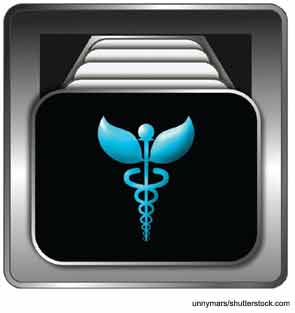The promise of EMRs—more efficient workflow, improved patient care, even increased patient safety—may still be worthwhile.


The promise of EMRs—more efficient workflow, improved patient care, even increased patient safety—may still be worthwhile.


Panelists at Triological Society meeting discuss impact of EHRs on patient safety, federal regulations surrounding them, professionalism in using them

Adoption of health information technology raises ethical concerns over its impact on clinical interaction


A new study suggests adopting EHRs can lower the risk of medical malpractice, but not everyone agrees that EHRs are good medicine

Carefully weigh costs when deciding on a cloud technology.

Cloud computing is the delivery of your computing needs as a service rather than as a suite of products that you have to purchase and maintain. Why couldn’t we do that with an EMR or EHR for our patients?

Neil Chheda, MD, assistant professor of otolaryngology at the University of Florida in Gainesville, realized a few years ago that nearly half of his patients on proton pump inhibitors were taking them incorrectly.

Need an incentive to implement an electronic health records (EHR) system in your practice? How about $44,000? That’s the amount the federal government is making available to eligible physicians as part of its effort to speed up the adoption of health information technology throughout the U.S. In fact, under the Health Information Technology for Economic and Clinical Health Act (HITECH Act), part of the American Recovery and Reinvestment Act of 2009, billions of federal stimulus dollars are flowing to medical practices throughout the U.S. to help physicians set up EHR systems.